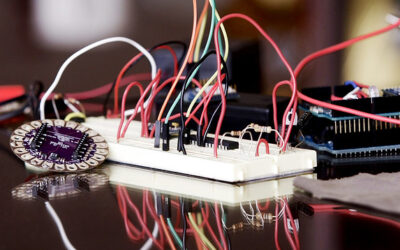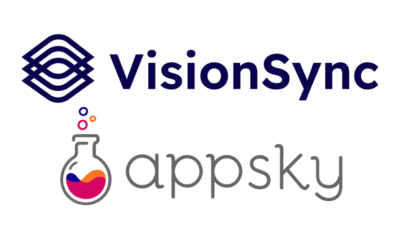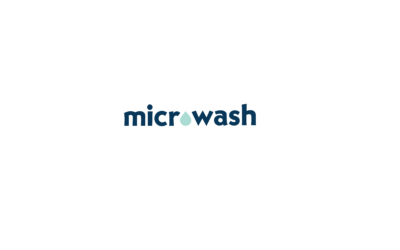At UNeTech we write a lot of grants. Most of them we don’t get, except the ones we do.
UNeTech had a busy spring writing and submitting a wide variety of proposals. Two of them were funded and, with a recent spate of good news, I wanted to take a few moments to thank some long-term supporters.


First, the Economic Development Administration (EDA) awarded UNeTech $300K as part of its 2022 Capital Challenge. (You can read about that here.) The EDA has supported and supported UNeTech in the past and we are so grateful for the agency’s continued support of UNeTech’s efforts. That support has taken the form of providing technical and business strategies to transition inventions into startups. As UNeTech takes the next step, to match those startups with investors and other resources to grow, we are privileged to have the EDA’s support.
The Omaha Medical Technology Development Alliance is the next step. Through the alliance, UNeTech will find and connect potential sources of equity-based capital to the growing medical technology startup ecosystem in Omaha. In addition to ongoing startup support, UNeTech will expand its encouraging programs that connect investors to medical technology startups. Among those programs is the Maverick Technology Venture Alliance (MTVA). Housed at the University of Nebraska Omaha College of Business Administration, the MTVA helps to sketch inventions into early-stage startup concepts. The Omaha Medical Technology Development Alliance relies heavily on the MTVA and the MTVA relies on some key collaborators.
First is Dr. Brent Clark, the academic lead for the MTVA. A professor of business strategy, Brent brings the tools by which the MTVA turns an invention into a startup. Next is Dr. Dale Eesley, the John Morgan Community Chair in Entrepreneurship Marketing & Entrepreneurship. The MTVA joins an innovative range of student programs like the Maverick Venture Fund to provide compelling applied entrepreneurship opportunities to students.
Finally, are the students of the University of Nebraska Omaha. I have been blown away by the curiosity and hard work these students bring to writing reports that describe the startup that “could be” from the invention that is.
As if the Omaha Medical Technology Development Alliance wasn’t enough, UNeTech also helped secure a grant from the Midwest Biomedical Accelerator Consortium (MBArC). The proposal, titled “Developing a bioabsorbable platform to enhance dialysis access” came to be due to the generous collaboration with the MBArC program. Dr. Jaya Ghosh, led a cohort of inventors and entrepreneurs to help refine their inventions. I was so glad that UNeTech could help participate on a few projects.
MBArC ultimately chose to fund a project invented at UNMC. Dr. Marius Florescu is an inventor I have worked with for over a decade. He has an intuitive understanding of the underlying biology that influences how disease progresses. That knowledge is on display with the bioabsorbable platform. Patients on dialysis are often really, really sick and in need of serious and invasive surgery. Because the patients are sick, those surgeries often fail. The bioabsorbable platform, in preliminary studies, has shown amazing efficacy in supporting the veins through which dialysis patients get the life-sustaining procedure. The bioabsorbable platform will make those difficult surgeries successful. To bring this project to market will require enormous financial support, well beyond any project UNeTech has so far attempted. With MBArC funding – that project has a path forward and I am so grateful for the chance.
And we won’t be alone!
In addition to Dr. Florescu and UNeTech, the MBArC project includes NanoMag. Led by Dr. Stephen LeBeau, NanoMag invented a novel bioabsorbable magnesium alloy. I personally searched the entire internet for a material that would work for Dr. Florescu’s bioabsorbable platform. Nanomag was the only one. Through MBArC, Dr. Florescu and NanoMag will conduct the critical experiments, refine the initial design and optimize the procedure to improve hemodialysis. If it works, the bioabsorbable platform may similarly revolutionize transplant, vascular and a wide variety of other kinds of surgery.
Finally, I cannot say thank you enough to my colleague Dr. Jace Gatzemeyer. Leveraging his previously-described curiosity, Jace drafted both of the successful proposals. One week its entrepreneurial best practices and the next its the gory (and I mean gory) details of testing new vascular technologies. Jace has had a spectacular year in 2022 and I’m so excited to see what he does next.
In the end, UNeTech is fortunate to have a mission that so many people are willing to support. I am so fortunate to have a network of diverse and engaged collaborators and a team of dedicated colleagues. I do welcome the recognition our efforts have brought but I’m also eager to get back to work. UNeTech is helping to create the future of healthcare – and that future can’t come fast enough.

All 16 participating institutes in MBaRC are eligible for funding.




